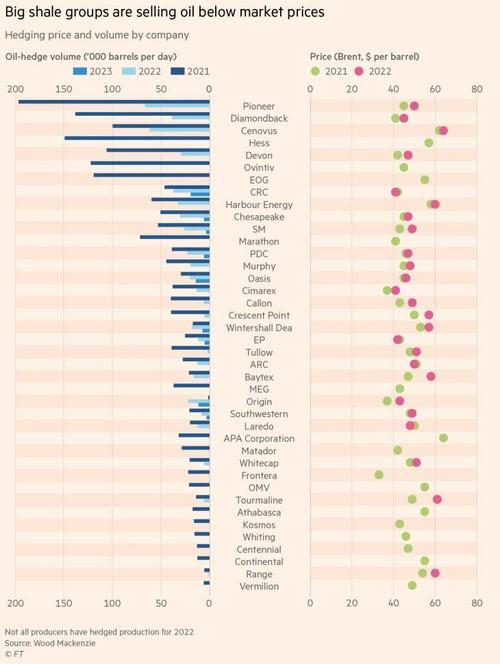For the first half of the year, IHS Markit says, losses have reached $7.5 billion but if oil prices remained around $75 per barrel, this could add another $12 billion during the second half of the year as demand continues improving.
This, the report notes, could give OPEC more pricing power: because of their badly miscalculated hedging, U.S. shale oil producers are unlikely start boosting production in any major way anytime soon. As a result, OPEC can do pretty much what it wants with its own production and push prices however high it wants.
“Opec gets a pass to keep lifting prices right now if it wants to, without fearing much of a US supply response,” Bill Farren-Price, an analyst at Enverus, told the FT.
“Shale producers are locked into selling their oil cheaply this year.”
Meanwhile, U.S. shale producers have become wary of hedging, according to a Reuters report from earlier this week.
After a surge in hedging in June, the report noted, companies have now retreated and adopted a wait-and-see attitude, not least because of bullish forecasts on oil prices.
"With every bank saying that oil will be at $90-$100, no one is going to put hedges on right now," one industry executive told Reuters.
Shareholders are skeptical of the benefits of hedging, too, Reuters reports, citing analysts. In fact, shareholders would rather companies ramped up production than hedging, which is acting as a deterrent factor, too. Still, some shale producers are hedging more, although these are a small minority.
Courtesy of Tyler Durden, Founder of Zero Hedge
The views and opinions expressed herein are the author's own and do not necessarily reflect those of EconMatters.


